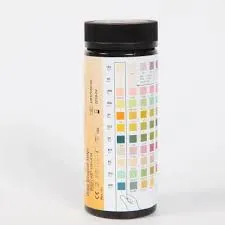Jul . 26, 2024 01:01 Back to list
Leading Manufacturers of High-Quality Cassette Pregnancy Tests for Reliable Results and User Convenience
Cassette Pregnancy Test Manufacturers An Insight into the Industry
In recent years, the demand for home pregnancy tests has surged, driven by increasing awareness and the need for convenience. Among the various formats available, cassette pregnancy tests have gained popularity due to their ease of use and accurate results. This article explores the landscape of cassette pregnancy test manufacturers, examining their roles, technological advancements, and the challenges they face in the industry.
Understanding Cassette Pregnancy Tests
Cassette pregnancy tests are semi-quantitative devices that detect the presence of the human chorionic gonadotropin (hCG) hormone in urine. This hormone is produced shortly after a fertilized egg attaches to the uterus, making it a reliable marker for early pregnancy detection. Unlike traditional midstream tests, cassette tests typically require the user to collect urine in a container and then apply a few drops to the test cassette. The results appear in the form of colored lines, indicating whether the result is positive or negative.
The Manufacturers' Landscape
The cassette pregnancy test market comprises various manufacturers, ranging from large multinational corporations to smaller specialized firms. Key players include companies like Abbott Laboratories, Quidel Corporation, and Procter & Gamble, which are well-established in the medical diagnostics field. These manufacturers invest heavily in research and development to enhance the accuracy, sensitivity, and ease of use of their products.
Emerging companies have also entered the market, often innovating in packaging and user experience. Some firms focus on integrating technology into their tests, offering connected devices that can sync with smartphones for tracking results. This shift towards digital health reflects broader trends in consumer behavior and demands for more interactive health solutions.
Technological Advancements
cassette pregnancy test manufacturers

One of the notable trends in the cassette pregnancy test manufacturing industry is the continuous technological advancement that enhances test performance. Manufacturers are exploring improved detection methods that can offer results even earlier, potentially within days of conception. Enhanced sensitivity allows these tests to identify lower levels of hCG, making early detection more feasible.
Moreover, advancements in materials and manufacturing processes contribute to the reliability and user-friendliness of cassette tests. Some manufacturers are now utilizing advanced biomaterials that minimize the risk of false positives or negatives, which is crucial for maintaining consumer trust. Additionally, the design of the cassettes has evolved, making them more compact and easier to read, which is especially important for anxious users.
Challenges in the Industry
Despite the promising growth, cassette pregnancy test manufacturers face several challenges. Regulatory requirements are a significant barrier, as manufacturers must adhere to stringent guidelines set forth by health authorities like the FDA. Achieving compliance can be a resource-intensive process, but it ensures the safety and effectiveness of the products.
Furthermore, the market is becoming increasingly competitive, with many brands vying for consumer attention. This competition drives innovation but can also lead to market saturation. Manufacturers must continually differentiate their products through branding, marketing, and innovation to maintain their market share.
Additionally, the ongoing pandemic has highlighted supply chain vulnerabilities and the need for manufacturers to adapt quickly. Many companies have had to reassess their sourcing strategies and production capabilities to ensure they can meet consumer demand without compromising quality.
Conclusion
Cassette pregnancy test manufacturers play a crucial role in the healthcare landscape by providing accessible and reliable products for pregnancy detection. As the demand for these tests continues to grow, manufacturers must navigate regulatory challenges while embracing technological advancements and competitive pressures. Ultimately, their ability to innovate and adapt will determine their success in this ever-evolving industry. With continuous improvements, cassette pregnancy tests are poised to become ever more reliable, user-friendly, and integral to women's health management.
-
Dengue NS1 Rapid Diagnostic Test Kit
NewsMar.07,2025
-
Dengue NS1 Rapid Diagnostic Test Kit
NewsMar.07,2025
-
Dengue NS1 Rapid Diagnostic Test Kit
NewsMar.07,2025
-
Transferrin Rapid Test Cassette Tumor Marker TF Card
NewsMar.07,2025
-
Malaria Pf Pan Rapid Diagnostic Test Kit
NewsMar.07,2025
-
malaria pf / pan ag rapid test
NewsMar.07,2025

